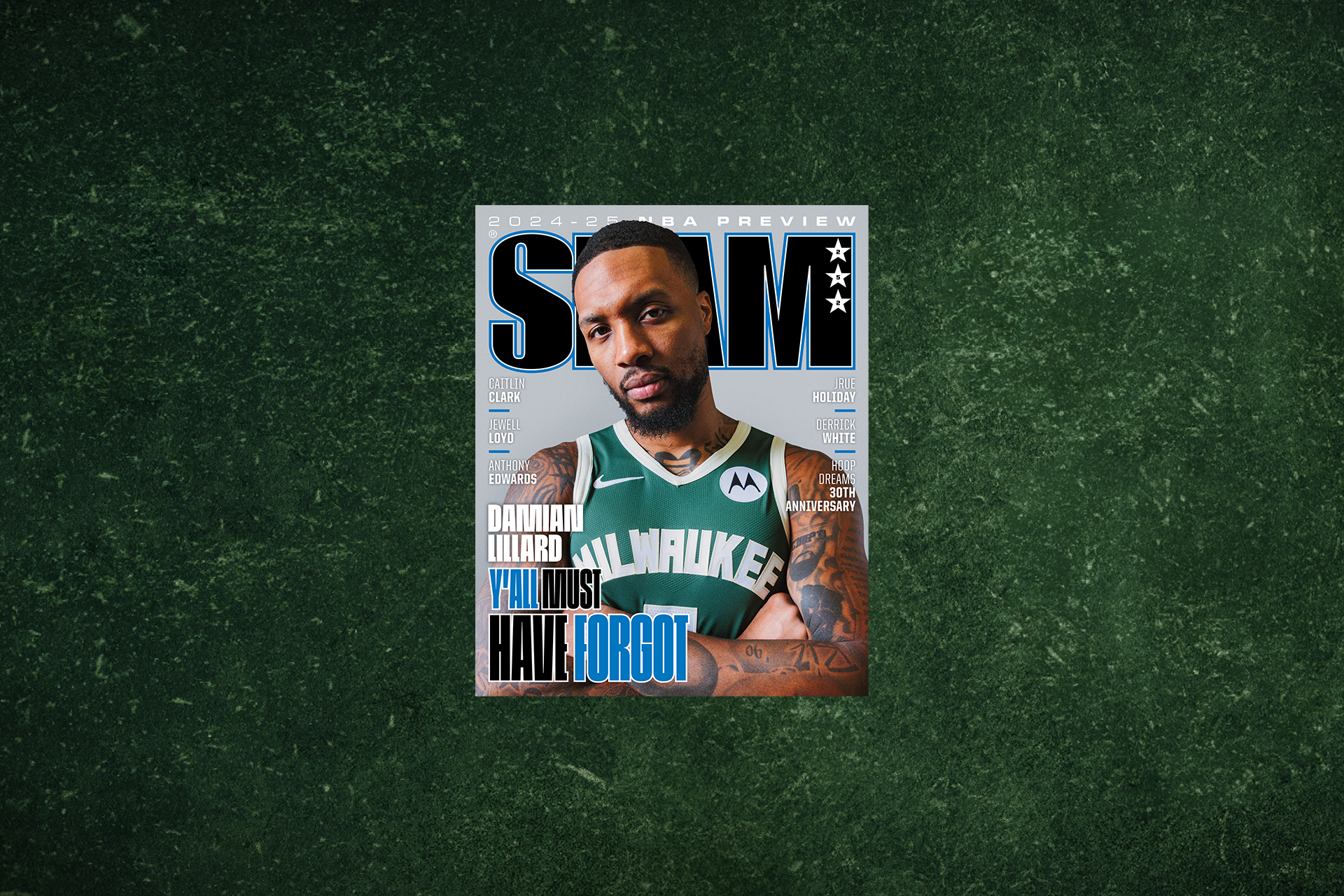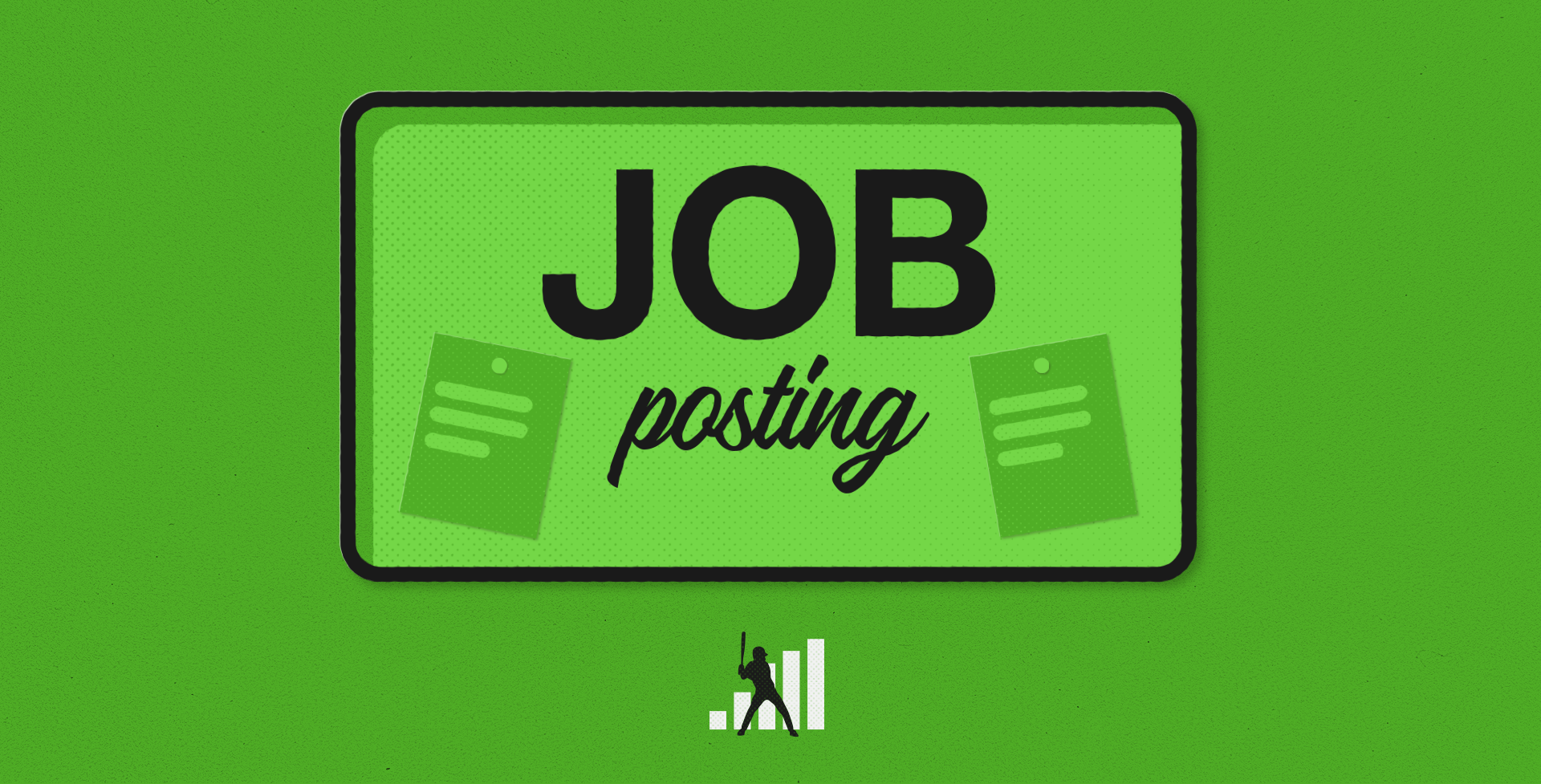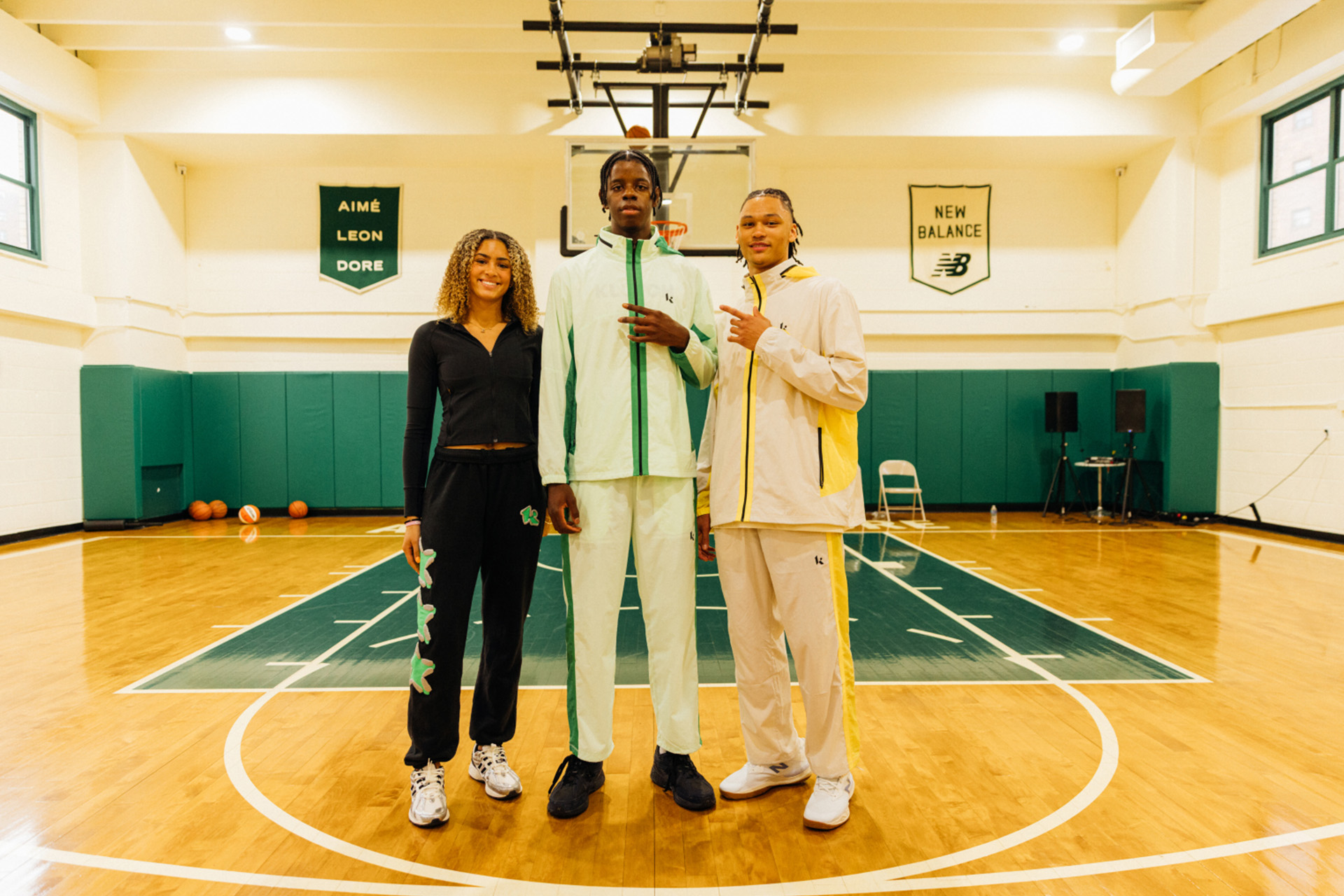[ad_1]
The house is secluded and peaceful, a modern structure with large windows at the end of a long driveway. It was finished roughly a year ago, just before its owner, Damian Lillard, was traded from the Trail Blazers to the Bucks. Lillard returned as soon as the season ended and has been in the Portland area for most of the summer, keeping things, in his words, “really simple.”
Everything he needs is here, including a state-of-the-art gym, where we’ve set up to shoot the cover of SLAM 252. Behind one basket, stretching the entire length of the wall, is a blown-up image of Lillard’s series-clinching three-pointer against the Rockets in 2014; behind the other, the unforgettable shot that knocked out the Thunder in 2019. Other photos marking significant moments in Lillard’s life and career surround the court—of family and friends, of award ceremonies and celebrations, of dunks and game-winners. “All part of the story,” he says.
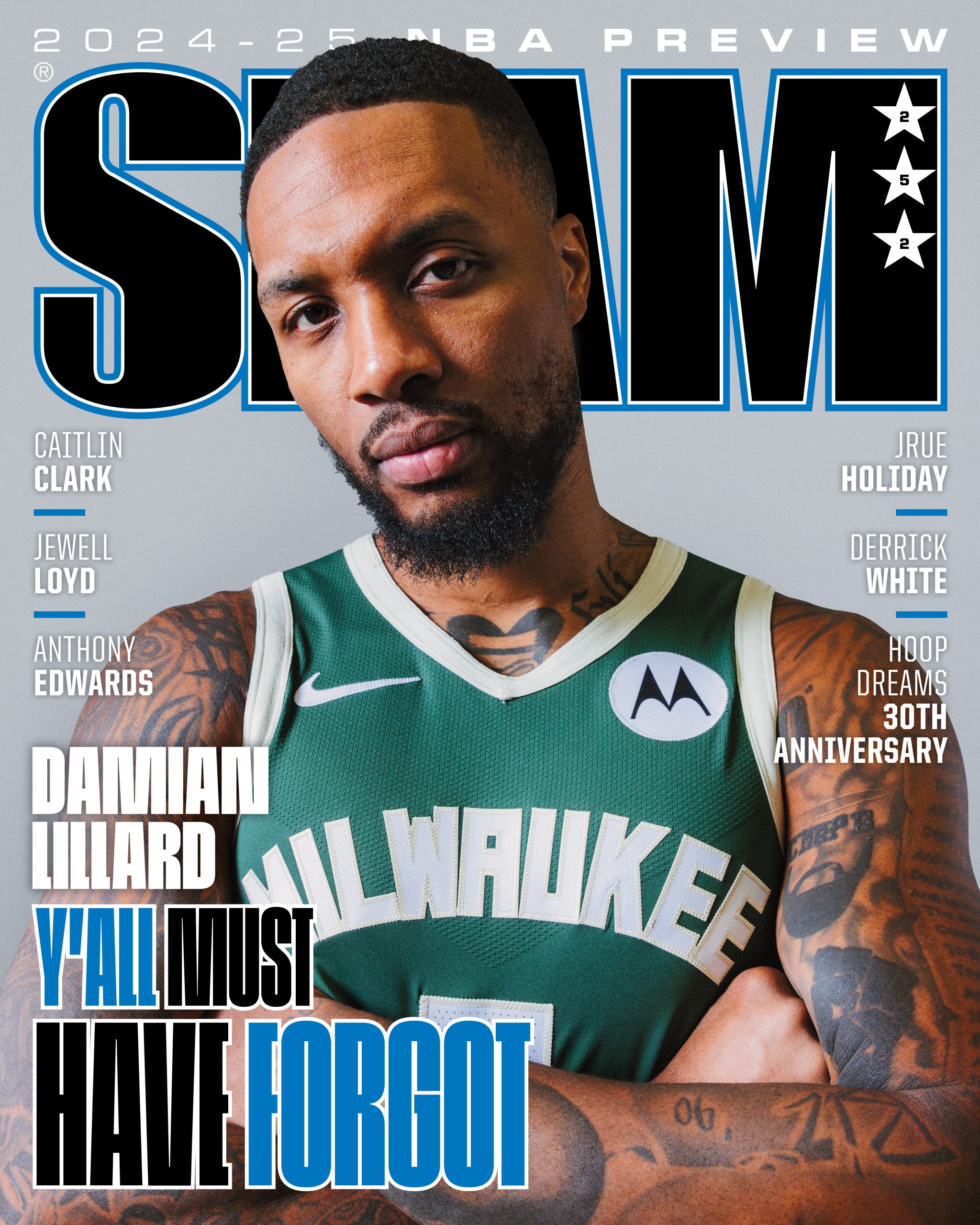
SLAM 252 featuring Damian Lillard is available now.
A year ago, Lillard wasn’t sure where the next chapter of that story would unfold. After requesting a trade in July, his summer plans had to be altered. He couldn’t play competitively—couldn’t train as rigorously as he likes to—knowing that an injury would compromise negotiations. He waited three months until the deal with Milwaukee was done, leaving him with just a few days to pack his bags and adjust to his new situation before training camp began. It was all so hectic.
This summer has been a refreshing change. Less business, more family. Less uncertainty, more peace. Less waiting, more action. Lillard has been able to focus on his training, embracing a holistic approach that includes a strict anti-inflammatory diet. He even spent four days in Las Vegas working out with retired Navy SEAL David Goggins.
As the 2024-25 season looms, Lillard is prepared in a way that wasn’t possible last September, both physically and mentally. Here, he reflects on the past year, his transition to Milwaukee, building chemistry with Giannis Antetokounmpo and much more.
SLAM: What was it like to work out with David Goggins and how did that come about?
Damian Lillard: We had had many conversations over the last two-and-a-half years about getting together and training. And he would always tell me, like, ‘Man, I could take you to the next level as far as your conditioning and your mind.’ And I wanted to do it. It was just a matter of finding the time and opportunity that fit both of our schedules. And that time came this summer.
It was definitely a challenge physically. A lot of those exercises and conditioning drills that he pushes you through are a challenge. It pushes you past your limits. But I think it was more of a mental thing than anything. You realize how hard it is to do those things, and then he’s constantly demanding more. I walked away from it just understanding myself a little bit better, as far as like what you have to give. There were a lot of moments [where] I was ready to quit. And he didn’t say, ‘Just give me a little bit more.’ He was demanding a lot more when I had nothing left. He kept saying, ‘Don’t just survive, you gotta conquer it.’ And the fact that I was able to do that, I think it did change something for me mentally as far as when I feel like I’m breaking down and wearing down.
SLAM: Reflecting on last season, what are the challenges that come with adapting to a new team that people on the outside tend to overlook?
DL: I think the number one thing people don’t understand is the change that it is for the person—the change that comes with picking up and going into a new environment. Sometimes you leave one job for another job and you might have to relocate, but a lot of people go job to job locally. They don’t have to pack up their lives and go to a completely different place. And that’s not something that everybody experiences the same as us.
The number two thing is having to learn to work with somebody new. And not just having to—being expected to work together and figure it out right away. And I think that’s something people don’t understand. They just look at, This player’s great, that player’s great, you got this, you got that, and they just think it’s supposed to work. But you gotta figure out how it works for everybody. Me playing with Giannis is one thing, but we have to figure out how we work best and how that works for everybody, because there are a lot of guys that have to be able to do what they do best and be in a position to succeed for the team to succeed. So I think a lot of people look at two [people], and they don’t look at the big picture of the entire team.
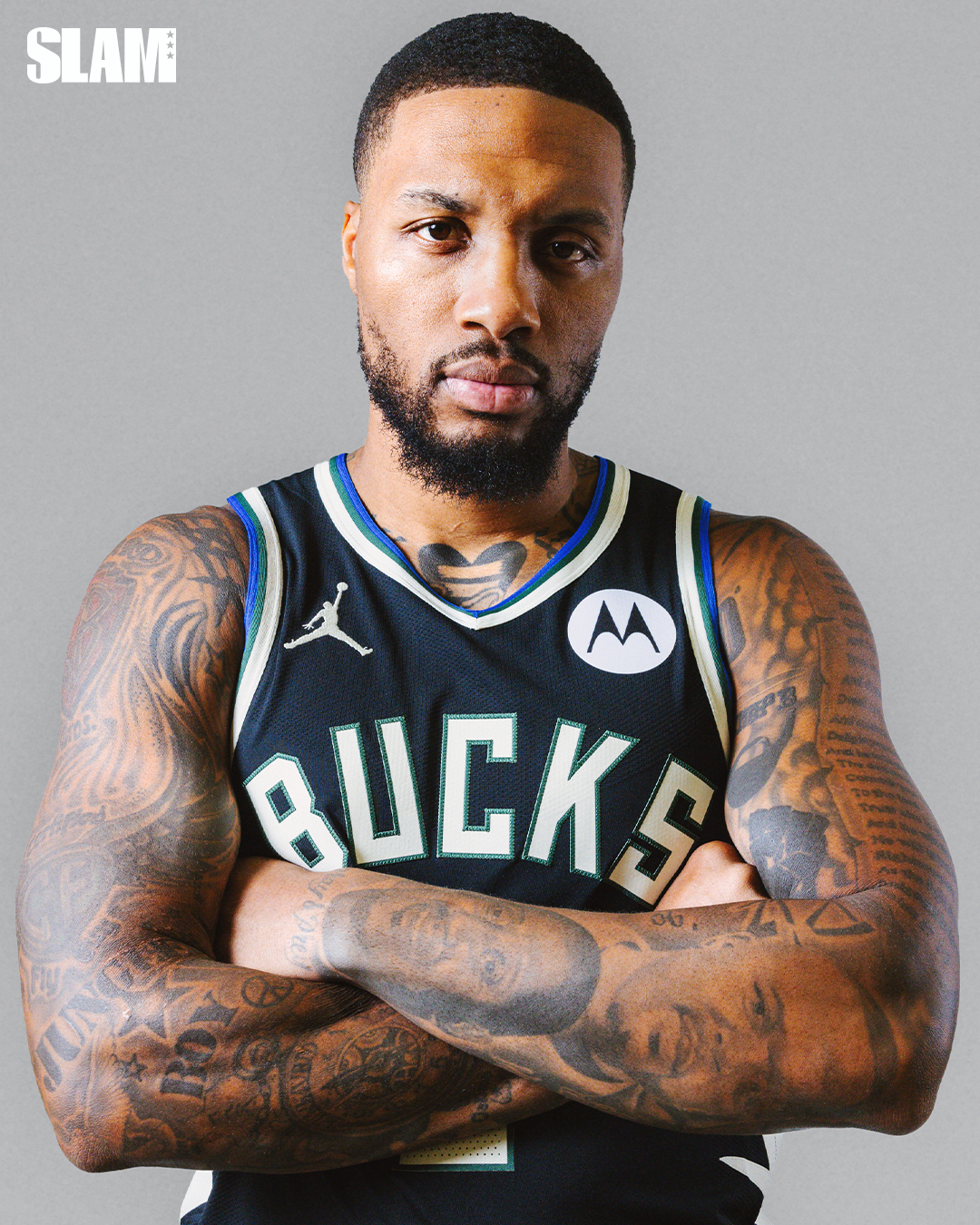
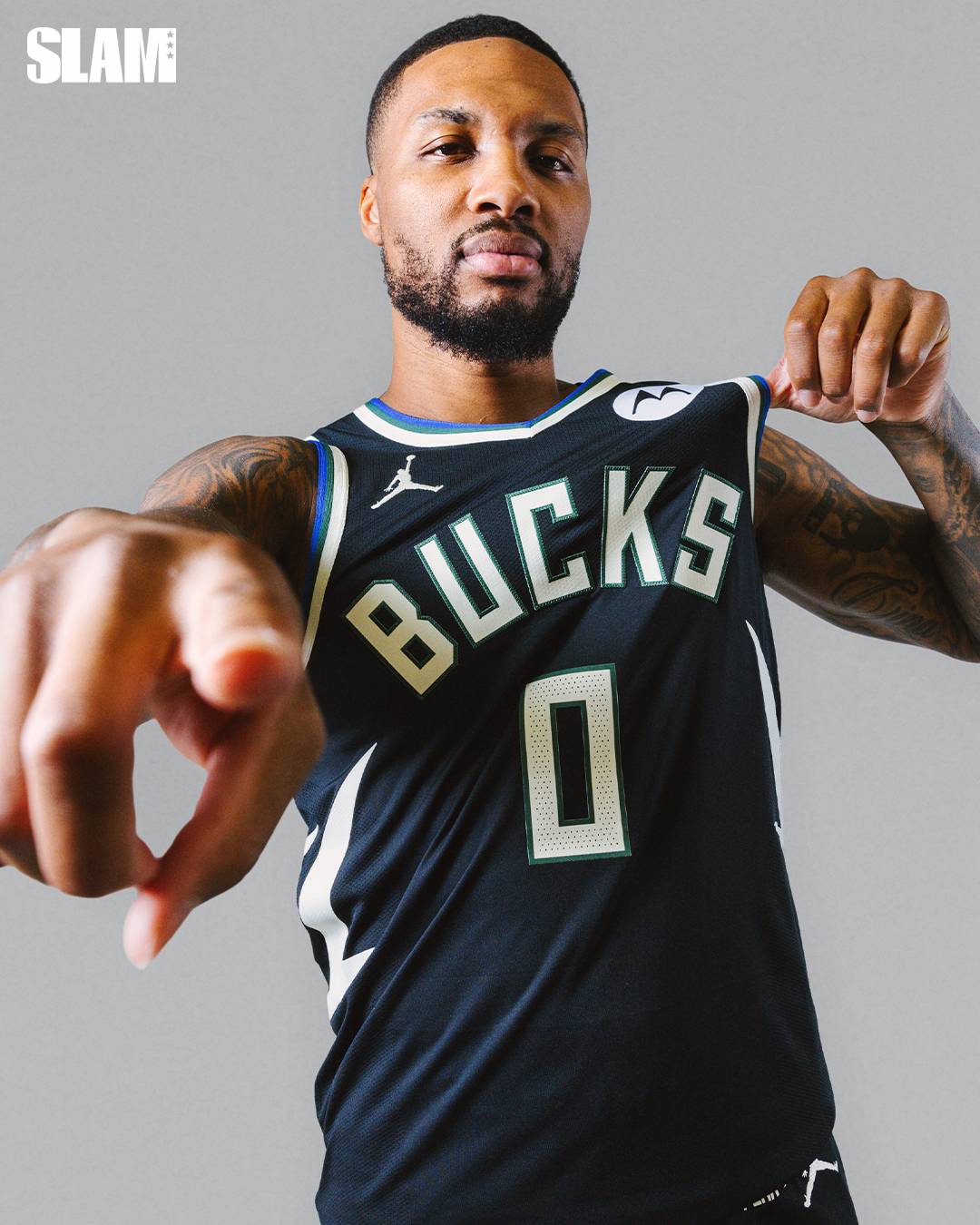
SLAM: Now that you’ve been able to get settled a bit in Milwaukee, is there a level of comfort and peace that you think will translate to the court?
DL: I definitely think there is. Like I said, being able to come back and do everything to prepare myself to the best of my ability is the first thing. I know that when this summer ends and I get ready to go back to Milwaukee, I’m gonna go back prepared, not just because of what I did for my body, my PT, my strength and conditioning and my diet—all of those things are great for me physically but being able to come here and I didn’t say, All right, this summer I’m gonna take off and go on all these vacations and do all these things. I spent a lot of time with the people that I really care about and that I want to be around, and that’s my kids, my mom, my nephews, my sister, my brother, my cousins. We didn’t do a whole lot, we just spent a lot of time around each other. And I think that that did me very well this summer. So going back knowing that I’m physically prepared and I’m mentally prepared and it’s a more familiar situation. We gained some stability with [head coach] Doc [Rivers]. Knowing who I’m gonna go play for, having a much better understanding of the team, knowing guys now—I mean, it’s just different. And all of those things give me a different level of peace going into it than I ever could’ve had last year.
SLAM: You talked last year about the challenge of figuring out who you are on the Bucks. With a year under your belt, have you figured it out?
DL: I think I definitely have a much better idea coming off of last season and only getting to know the staff better. Even over the summer, spending time around them, talking to them, and also being able to step away and look back, I have a much better idea what is necessary for me. I know that I don’t need to play the same type of game that I played for the first 11 years of my career, but I think my mentality has to be what my mentality has always been. Instead of trying to come and overly fit in, I think I was brought in to be who I am. I spent too much time trying to ease my way into, What does it look like?, instead of just asserting myself and being who I am. Looking back now and also being there for some time, I think my understanding of that is much better.
SLAM: How has your relationship and chemistry with Giannis evolved and where is it at now?
DL: I think it developed great over the course of the season. He’s not a super talkative person and I’m not a super talkative person myself. Over time, I’ve become [more outspoken] the more that I start to build relationships with people, especially on the team. And I think as the season went on, me and him definitely started to talk more and more, and I started to come to his house to do conditioning or work out together. We’re on the phone. I’m sending him clips and stuff like that. And this summer, we’ve been in constant communication. We both know that we need each other. I think he’s excited coming into the season just like I am, because we became a lot closer as the season went on and we started to learn [about] each other a lot better. So having a full offseason of being connected to each other and being able to go into this next season, I think we’re both going to be ready. And we’re both excited to do what we gotta do.
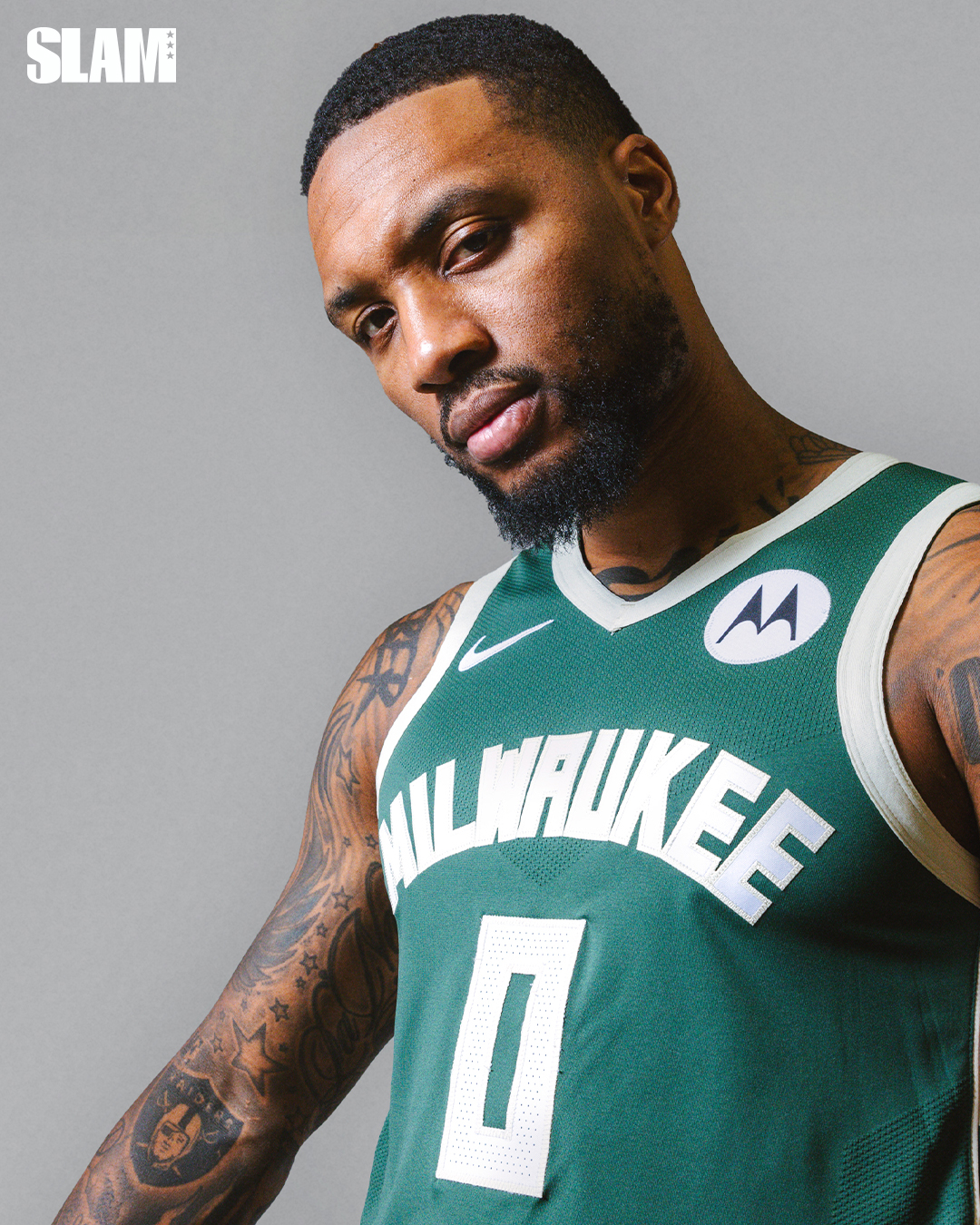
SLAM: Can you talk specifically about building pick-and-roll chemistry with Giannis? How has that developed?
DL: To start the year, we just weren’t in a lot of pick-and-rolls together for a long time. We were playing in transition, or I was in ISO, or he was in ISO. It just wasn’t a lot of pick-and-rolls. The best way to get chemistry in pick-and-rolls is to be in a lot of pick-and-rolls together. And I think it got to the point with Doc where he was having us in practice, just, Set it. Throw it to Giannis. Giannis, give it back to Dame. All right, Dame, throw it back. All right, Giannis, uphill DHO. It was almost like the team was laughing at us, just repping it out over and over.
Then in games, we ended up being in a lot of those actions together a lot more the second half of the year. I started to see what he was thinking, and I think he started to see what I was thinking, and then we would talk about it. Once you start to build chemistry, then I can start directing a little bit more because we are more connected, instead of me just trying to tell him what I want him to do [when] we haven’t even really worked together on it. [I was] wanting to give him the respect of, like, he might have something that he wants me to do a little bit different, but it’s hard to figure that out when you’re not in a lot of pick-and-rolls together. And as the season went on, I started to see how I can make the game easier for him, and I think he started to see what I needed from him to be free out of the pick-and-roll. And from here, I think it’ll continue to just get better.
SLAM: Do you feel like people are overlooking the Bucks heading into this season?
DL: Yeah, I think people are definitely [doing that], and that’s how the league is. It’s like, on to the next thing. There are younger teams on the rise, you have teams that made big free agency moves, teams that made trades, all types of things took place. So obviously that’s going to be what’s sexy. When I got traded to Milwaukee, it was like, Oh, the Bucks gonna win! Everybody just jumped on it, you know? So when something major happens or something big happens for a team, especially if it’s already a good team, like of course [that’s the reaction]. Rightfully so, all of those types of teams are going to be mentioned at the top.
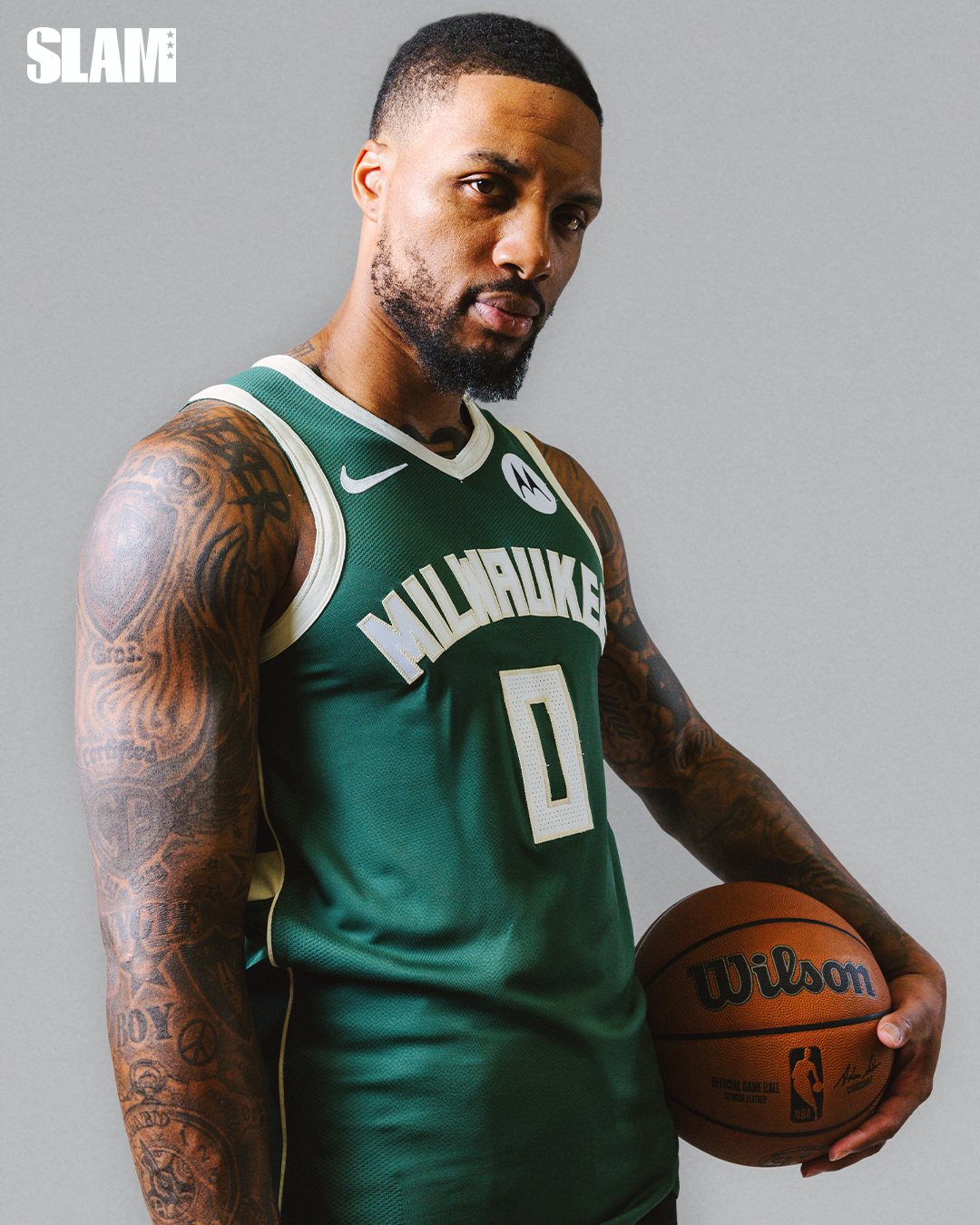
SLAM: On the Club 520 Podcast, you talked about how consistency tends to get boring for people, to the point where it starts to go overlooked. Can you elaborate on that a bit and how you’ve seen that play out during your career?
DL: I think early in my career, I always felt like I was underappreciated. I had an underdog mentality. Sometimes even when I was getting credit, I felt like I wasn’t getting enough credit or they were ignoring what I was doing. And then I think I reached a point in my career where I started to get acknowledged how I felt I should be acknowledged. And then fast forward to being named to the 75th Anniversary Team, [that was] like, the ultimate nod to what my body of work has been and how consistent I’ve been since I stepped foot in the NBA.
But on the podcast, I was really just saying, like, I’m not loud and I’m not saying too much and doing all these things, but I’m always productive. Even in a season like last season where I feel like I could have been better in a lot of areas, I still had a productive season, and we were still a successful team throughout the season—a two-seed for pretty much the entire season. I think people just kind of look past it because of what they think we should be or whatever their personal opinions are. But the fact of the matter is, I’ve always been productive. This is gonna be my 13th season, and I continue to just show up and be productive. And my team is always a good team. Over time, people are just like, Yeah, you don’t have a ring. What’s next? But I think they get bored with the fact that I just do it over and over and over and over and over. It’s like, Do something else. When it’s really, like, I’m showing up, putting my best foot forward.
SLAM: We see how much fun you’re having with your kids today. Can you describe the motivation that you get from them?
DL: I get a lot of motivation from being a dad and from my kids because how I was raised—like, the principles and the values that my parents raised me with—having my own kids, now I got even more pride about those things. There are some mornings where I gotta work out at 6:30 and I’ll get my kids up and bring them in here. They might have a tablet or whatever it is so they’re entertained and not getting in the way, but they’ll sit over there while I work out because I want them to be able to see, like, this didn’t just come out of nowhere. You gotta work hard for stuff. You gotta do stuff that you don’t want to do. A lot goes into the life that you guys have. And I want them, from a young age, to understand what it means to work hard for things and sacrifice. I say that to say, they have to see me be the ultimate example of what I preach to them.
And the motivation comes in where, if I’m being criticized, or if I’m struggling, or if something makes me uncomfortable, I think about my kids when I’m having to respond to those types of situations. I know that, especially with the internet and cameras being everywhere, there’s gonna come a day where my kids will be old enough to understand like, This was happening to my dad or, This was what people were saying about my dad, and there will also be evidence of how I responded to those things. Whatever the situation is, I’ll be the example for my kids and my nephews and nieces, where they’ll be like, He’s not just telling us this, there will be proof of, like, This is who I am. I think that’ll give them a sense of pride, because they’ll see it with their own eyes. And I feel that way because that’s how I feel about my dad. He said all this stuff to me and I see him walk that out. So that’s the kind of motivation I have. It’s not about—if I win a championship, that’d be great. That’s a cherry on top. But how you represent yourself and what you stand on as a human, I think that’s most important. So I get a lot of motivation from the opportunities to show that even when it’s a tough or a bad situation.
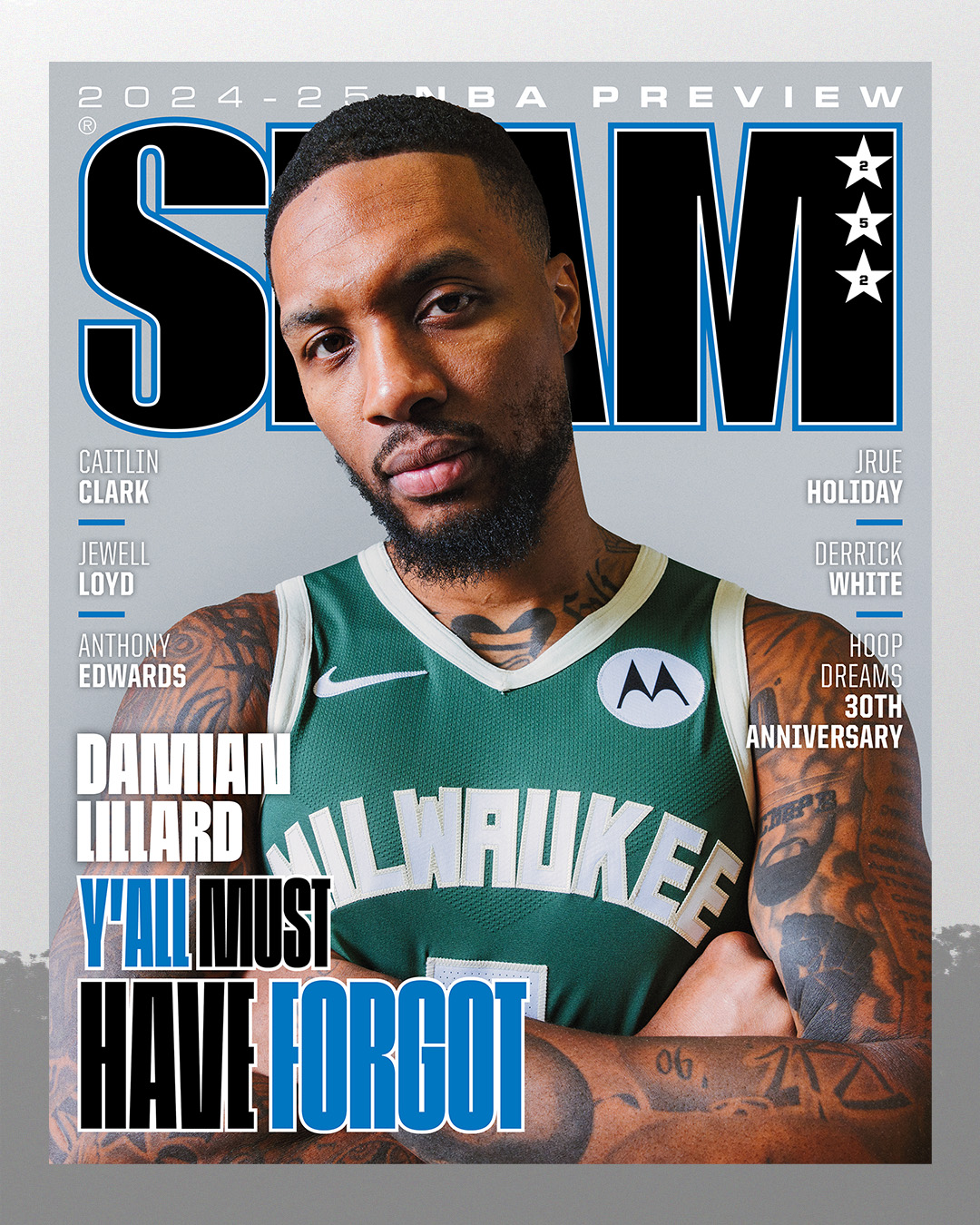
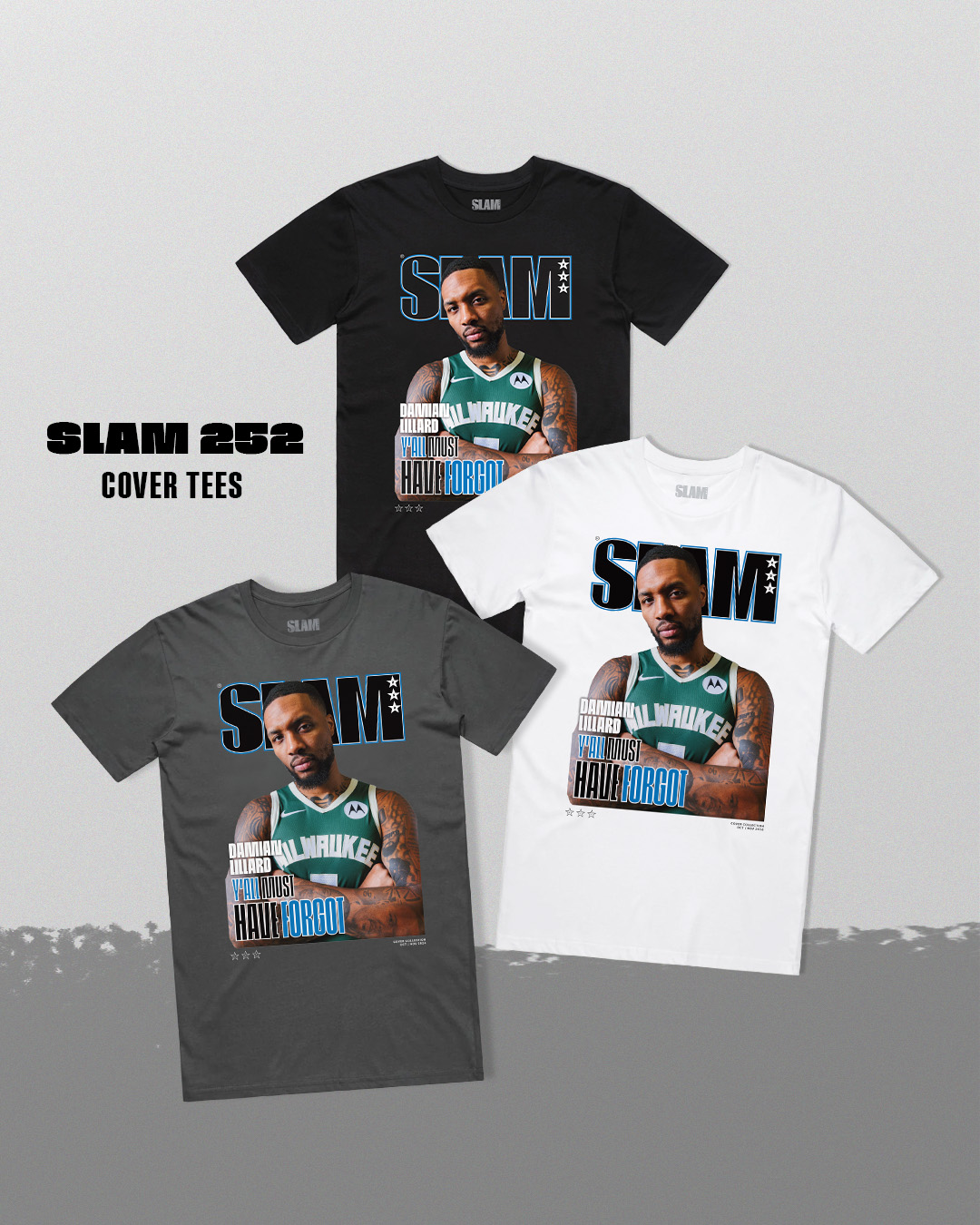
Portraits by Gabe Pineda, Victory Creative Group.
[ad_2]
Source link

